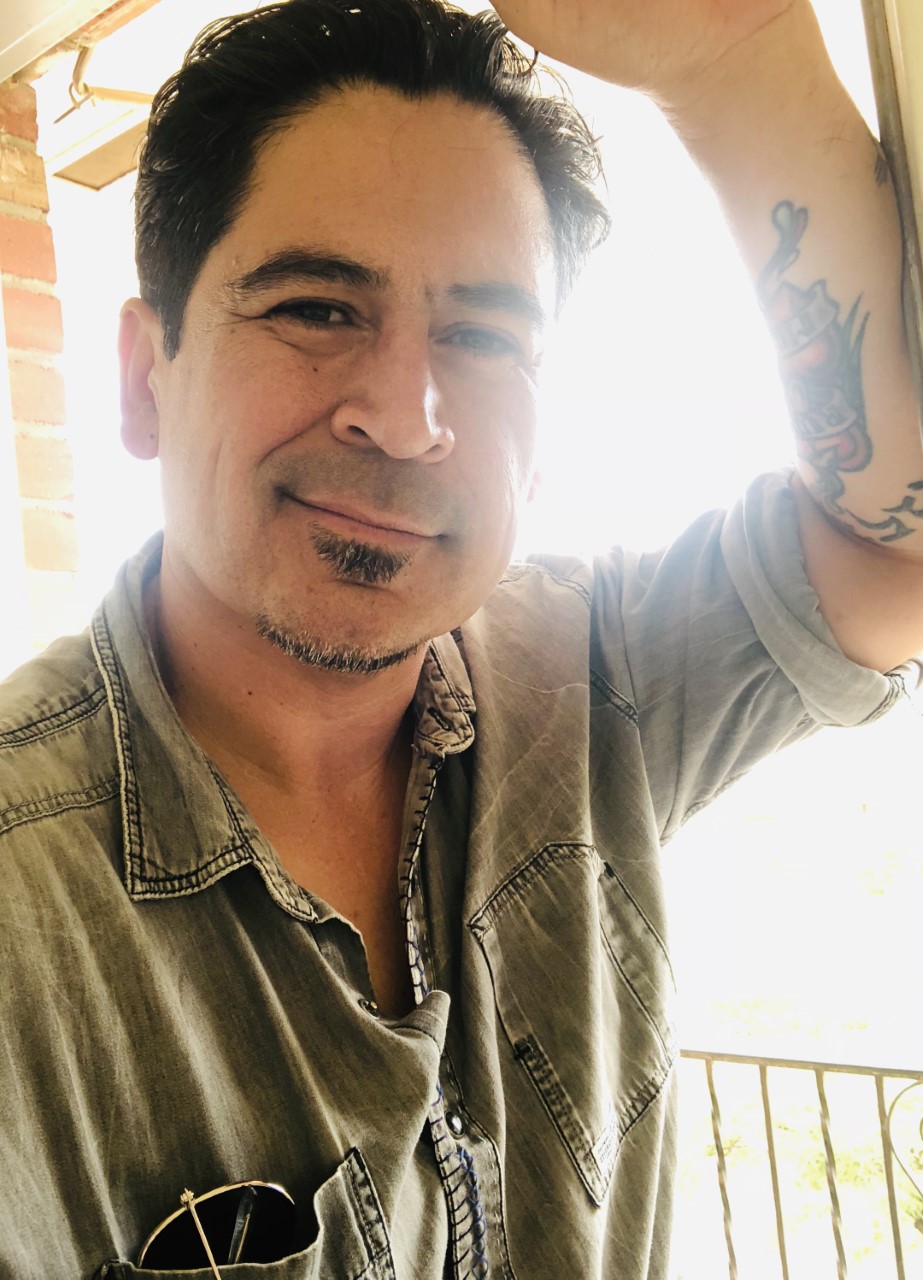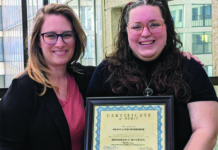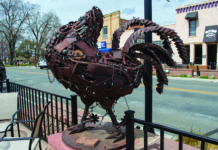Tim Hernandez is an award-winning author and poet. Visiting Colorado Mesa University (CMU) on Oct. 18, he presented his novel “All They Will Call You,” written about the 1948 California plane crash that led to the deaths of four American crew members and a forgotten band of 28 Mexican nationals.
The Criterion was able to ask him about the background behind his research, his process of writing the book, his emotions and obsession with the Woody Guthrie song about the passengers.
Q: [Can you give us some background on the passengers?]
A: When I say getting their stories back, I’m actually referring to all 32 passengers, including the four American crew members.
It’s important for me to state that outright, because that’s the whole sort of point of the story, is the story really is about 32 people who met the same fate, regardless of their background or upbringing.
That said, the issue was that of the total 32 passengers, or I should say ‘reportedly’ 32 passengers [. . .] because some of my research suggests that there may be even more than that [. . .] only the names of the four American crew members are mentioned in the media and newspapers, while the names of the 28 Mexican passengers were [. . .] only referred to as ‘deportees.’
And not only that, but then to add insult to injury, the American members were all, in the aftermath, their remains were returned to their families, all the way to Rochester, New York, and Berkeley, California, and then Long Beach California [. . .] but the remains of the Mexican passengers were not returned to their families, they were actually interred in the largest mass grave in California’s history.
When they were buried in that mass grave, it was left anonymous without a marker, for over seven decades, until I went looking to find out where they were.

Courtesy of Tim Hernandez
Photo taken by Juan Esparza
They were just told that their family had died in a plane crash, and that was it, none of them were told the details after that, so they were not able to grieve, to find closure.
Q: You found the song “Deportee” (Plane Wreck at Los Gatos) by Woody Guthrie about the passengers, and said you got attached [to the song]. Why did this resonate with you?
A: I was working on a previous novel [at the time]. I was not researching, I was not looking for this story, I was working on another novel that was about the author Jack Kerouac and his Mexican girlfriend, who he had dated for a couple weeks. My book was about her and her life.
They had stayed together at a labor camp in Fresno county in 1947, so I was actually trying to locate where that labor camp was for my other novel. I was typing into the search engine, you know Fresno labor camps 1947, 1948, just trying to see where they were to locate this labor camp. And that’s when this newspaper article just emerged.
I was actually listening to quite a bit of music from that time, music of that era that would’ve been around the people I was writing about.
I was listening to a lot of [Woody Guthrie’s] music, so I recognized right away [that this could be the article about the crash]. And so I was a little bit curious; I wonder if they ever did mention those Mexican’s names, and when I pulled that up and realized he was right, there was no mention of their names.
And then when I found myself doing [. . . ] more of that research. Up in that [crash site] canyon [while I was researching] I would play that song over and over.
Q: How did you go about getting their stories, to start off?
A: Well, I start like where I always do whenever I take on a project like this, I start at home. You know, I start right from home, I start looking, I start knocking on doors of people in the area, organizations that I’m familiar with in that Fresno county area.
I should say that that’s where I was born and raised, I’m from that area, so I have a lot of people that I know and contacts and such, and so I started to knock on doors there [. . .] I literally went up to the canyon to look for the crash sight itself.
It was only about an hour from my house where I lived at the time, and I knocked on doors there in the canyon in the mountains, and I said, ‘hey, does anybody here remember, was anyone around when this plane crash had happened?’
A lot of people for the most part were not even born when that happened, but there were a couple, and they said, ‘you know what, this woman lives down the street here, and she actually has been around since the [19]20s or 30s, her family has been there anyway [you] might want to ask her, if she’s still alive.
So I found her, Dolores Crabtree was her name [and others], were still alive, these are all folks who were kids when the accident happened, and they witnessed it. That’s where I began.
When I started to try and locate the families of the Mexican passengers, that was the most daunting part obviously, because I didn’t know their names. I didn’t know where they were. I went to the Fresno Hall of Records first and asked for the death certificates, since they died in that county, Fresno.
Once I had the names, I went to the newspaper, a local newspaper there, a bilingual newspaper in California, and I asked them, I told them about the story and I said, ‘can you help me, I’m trying to find these families, and if anybody is possibly related they can read this article and they can call me.’
Fortunately, one family did see that article, and called me and that’s how it all unravelled from there.
[. . .] I’m actually working on a part two to the book now.
Q: Can you tell me anything about the part two?
A: It dawned on me that people were interested in knowing a lot of what I do to put into that book, which is the process of looking for these people. I didn’t talk too much about that in the book at all.
I realized that the search, it’s also very much a part of my own search, my own personal journey, my own search, coming from where I came from and my own background.
So the second one is actually going to be a little bit more almost memoir-like, where I talked about my own search and what would lead me to find looking for people like that, and in the same book I’m also giving you the story of new families I’ve found.
Hernandez anticipates the part two won’t be out for a few years.
His work and novels can be found here.






